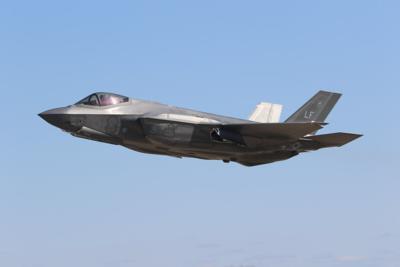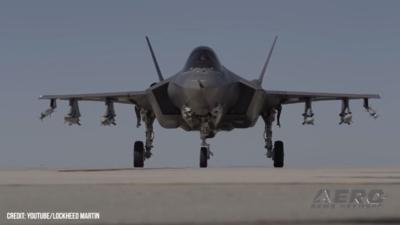Sun, Sep 11, 2022
Foreign Materials Used in Honeywell Engion Materials, May Continue After Waiver
The F-35 Lightning II program has reached its newest snag after a Pentagon investigation encountered unauthorized materials used in recent construction.

The issue stems from an alloy used in the aircraft engine's lubrication pump that was found to be made from unauthorized materials of Chinese origin. The alloy in question was passed to Honeywell, the manufacturer of the engine, from one of their suppliers before being used to produce a magnetized part within the USA. The material, a cobalt/samarium alloy, likely violates the Defense Federal Acquisition Regulations Supplement. The investigation will dig into the chain of custody to find out exactly how such foreign materials made their way into the (theoretically) all-domestic F-35 program to prevent similar incidents in the future.
Of course, this isn't the first time noncompliant materials have found their way into a national security project, and there is a pathway for the F-35 program to obtain a waiver for the piece. The Undersecretary of Defense for Acquisition and Sustainment, Bill LaPlante, will have to attest that the F-35s are a necessary piece of national security equipment. Lockheed has affirmed that it will provide as much support as possible in the investigation, as well as any information required to obtain the national defense waiver. The new part has been sourced, Honeywell says, this time domestically produced - but it will be some time before it's ready for installation. The supply chain is not so easily tamed, and a date for resumed F-35 production with the new piece will remain up in the air until things are sorted.

The incident is most likely a more interesting case study in supply chain fragility than national security weakness, given the fact that the Chinese material is a magnetic lump of metal, incapable of actively impacting safety of flight or aircraft security. Instead, it shows the difficulty involved in creating an all-American aircraft amidst a sometimes thready, complex global supply chain with multiple layers of subcontractors and suppliers. Last February, the issue was among the primary points of action relating to Executive Order 14017. A range of small, individual suppliers of critical parts without an aggregating ordering system makes similar incidents more common, as many national defense programs handle their own purchasing. That one-year effort intended to ensure the flow of Critical Minerals and Materials through a number of measures, notably through improved data analysis and commonality.
More News
He Attempted To Restart The Engine Three Times. On The Third Restart Attempt, He Noticed That Flames Were Coming Out From The Right Wing Near The Fuel Cap Analysis: The pilot repor>[...]
Make Sure You NEVER Miss A New Story From Aero-News Network Do you ever feel like you never see posts from a certain person or page on Facebook or Instagram? Here’s how you c>[...]
From 2009 (YouTube Edition): Leading Air Show Performers Give Their Best Advice for Newcomers On December 6th through December 9th, the Paris Las Vegas Hotel hosted over 1,500 air >[...]
Aero Linx: NASA ASRS ASRS captures confidential reports, analyzes the resulting aviation safety data, and disseminates vital information to the aviation community. The ASRS is an i>[...]
“For our inaugural Pylon Racing Seminar in Roswell, we were thrilled to certify 60 pilots across our six closed-course pylon race classes. Not only did this year’s PRS >[...]
 NTSB Final Report: Rutan Long-EZ
NTSB Final Report: Rutan Long-EZ ANN FAQ: Turn On Post Notifications
ANN FAQ: Turn On Post Notifications Classic Aero-TV: ICAS Perspectives - Advice for New Air Show Performers
Classic Aero-TV: ICAS Perspectives - Advice for New Air Show Performers ANN's Daily Aero-Linx (06.28.25)
ANN's Daily Aero-Linx (06.28.25) Aero-News: Quote of the Day (06.28.25)
Aero-News: Quote of the Day (06.28.25)




